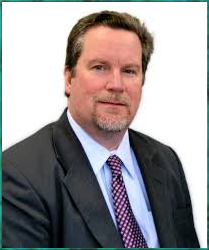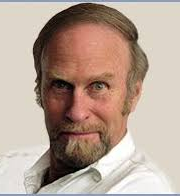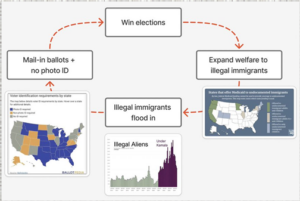 By Kathleen Marquardt
By Kathleen Marquardt
January 13, 2026
For decades many of us have been trying to wake the public up to the machinations of a plethora of our leaders working toward a one-world order controlled by the rich and powerful, to be structured on Marxism/communism.
Understand that for many years, there were dedicated citizens who tried to expose the dangers of the push for communist/Marxist world control. Those on the side of free -market, laissez-faire capitalism, property rights, personal freedoms were ridiculed, blackmailed, and otherwise treated like scum of the earth – so no “civilized” person would be silly enough to believe in their foolish statements against the United Nations, the World Bank, or even Greenpeace. Face it, General McArthur, Joseph McCarthy, General Benton Partin, Paul Harvey were the kind of leaders our great forefathers had been who wrote the Declaration of Independence and the Constitution. But these more recent were vilified and driven out of “the right” society.
What those, and others like them have done is to keep some semblance of freedom-supporting/promoting information in front of the masses when possible.
 One of those, whom I doubt if even 1% of the people have even heard about, is Jeri Lynn Ball, author of four books that could have/should have been shared by many and opened eyes decades ago. As she described her subject “Is it true that Americans are the targets of a full-scale psychological wars? Is it true that there has been a deliberated attempt to attack their minds, to undermine their institutions and beliefs, and to obliterate the Unted States? Is it true that to achieve these ends, the masters have gained virtual control of America’s educational system, the universities, the entertainment industry, and the media?” Yes, the key places to have control of the maximum outreach. The evil minds that knew exactly which areas of our lives they needed to infiltrate to gain the maximum power did a great job. Those same areas obviously should have been the ones that were protecting our Constitution and its freedoms.
One of those, whom I doubt if even 1% of the people have even heard about, is Jeri Lynn Ball, author of four books that could have/should have been shared by many and opened eyes decades ago. As she described her subject “Is it true that Americans are the targets of a full-scale psychological wars? Is it true that there has been a deliberated attempt to attack their minds, to undermine their institutions and beliefs, and to obliterate the Unted States? Is it true that to achieve these ends, the masters have gained virtual control of America’s educational system, the universities, the entertainment industry, and the media?” Yes, the key places to have control of the maximum outreach. The evil minds that knew exactly which areas of our lives they needed to infiltrate to gain the maximum power did a great job. Those same areas obviously should have been the ones that were protecting our Constitution and its freedoms.
Her books, Masters of Seduction being one, are out of print and very hard to find. To protect freedom with everything we have and give us the facts for which we now dig. We are trying to get them. Meanwhile, please read these pages from Masters of Seduction and share them.
Condensed from the book Masters of Seduction (Plus Vital New Facts) MASTERS OF SEDUCTION Beguiling Americans Into Slavery and Self-destruction Copyright © 2000 by Jeri Lynn Ball. This publication is copyrighted by Jeri Lynn Ball. Permission is hereby granted to any individual or entity to copy this article as long as it is presented in its entirety and no pages, quotations, or text are omitted, and that the copyright notice appears in its original form on all copies. This book presents facts that are completely at odds with the information being spread on a mass scale by the media. In light of the tremendous power of the press to shape public opinion, probably over 90 percent of Americans have never heard these facts before. The truth may shock and astound you. It may seem staggering, inconceivable– beyond reality. What are the unheard-of facts, the unsuspected truth? Is it true that Americans are the targets of a full-scale psychological war? Is it true that there has been a deliberate attempt to attack their minds, to undermine their institutions and beliefs, and to obliterate the United States? Is it true that to achieve these ends the masters have gained virtual control of America’s educational system, the universities, the entertainment industry, and the media? If so, how have they acquired this enormous power and why they are attempting to manipulate the thoughts and emotions of the whole American people?
Masters of Seduction zeroes in on the answers, showing that Communist masters who ran the “former” Soviet Union and East Bloc nations during the Cold War are still in control of these hapless countries today and that they are waging psychological warfare, using the same powerful secret weapon to subjugate Americans that they used to enslave their own people. The Russian totalitarians, Red Chinese, and their globalist American “partners” are using this secret ideological weapon, among other things, to achieve world domination. This book provides overwhelming documentation which proves that Communism is not dead and that it’s spreading like cancer.
In fact, America itself is now in imminent danger of being devoured by this pernicious, rapidly-spreading evil. ORIGIN OF THE TOTALITARIAN NEW WORLD ORDER At the Sixth Party Congress held in Moscow in 1928, Communists wrote and approved “The Program” to bring in the New World Order. What most Americans don’t know is the real nature of this diabolical criminal scheme. The Program of the Third International called for a global environmental program and for the transformation of all human beings on earth to accept the New World Order. These and other facts are brought to light by General Benton Partin in his videotape, Globalism: The Program.
The Communists planned to use the global environmental program as a means of eradicating national sovereignty and creating a world dictatorship. All nations, nationalities, and national boundaries were to be replaced by an 2 omnipotent, one-world government and regional governances. The Communists did not want the American approach to liberty, with individual God-given rights protected by a government with limited powers. The Communists did not want the American concept of rule of law. They wanted unrestrained despotic government, power without limit, a world without laws—a brutal, terror-inspiring global totalitarian police state which could smash all laws of justice, launch campaigns of enslavement and mass murder, and eliminate opponents of the New World Order.
Twenty delegates from the U.S. voted for the 1928 Program of the Third International. The Totalitarian Vision of “Human Reconstruction” The same year they wrote “The Program,” Communist architects and social engineers began to implement their plans for the globalist, communistic New World Order, commencing with the transformation of all humans into supporters of totalitarianism. Nikolai Bukharin had previously written “that the revolution’s principle task was to ‘alter people’s actual psychology.’” (Emphasis added.)
In 1928 Bukharin stated that “one of the first priorities is the question of the systematic preparation of new men, the builders of [totalitarian] socialism.” In his book, Soviet Civilization, Andrei Sinyavsky states that the “idea of the new man is the cornerstone of Soviet civilization.” The “new man” is in fact the indispensable, fundamental basis of all totalitarian societies. Totalitarianism requires the support, approval, and fearful veneration of the masses; if the “new men and women” had not been created, totalitarianism would not exist today. The Communists planned to create not only a new way of life, but new human beings. They sought to achieve not only the reconstruction of social and cultural institutions, but reconstruction of human beings. Communist totalitarianism has undergone tremendous growth over the past century only because it has “the support of a man of a new social and psychological type”—the “new communitarian (Communist) man.” A communitarian is a member of a communistic community. A communitarian adopts and advocates communistic concepts, such as a spirit of community, selfless commitment to community service, and the duty to work for “the common good.” The terms “Communist” and “communitarian” are synonyms and are interchangeable, but the word “communitarian” connotes a sense of community and a spirit of collectivism.
In 1928 Communists formally adopted “The Program” for building a new global communitarian social order composed of the ruling elite (the masters) and subjugated masses (the slaves). Soviet masters used the communitarian social system and moral code to prepare the “new communist man.” They reinforced the “spirit of community” that had been present in Europe for 200 years and instilled communitarian moral ideals into all Soviet citizens.
The masters “reconstructed” each individual by urging him to: 1) develop a sense of community; 2) cultivate the communist virtue of selflessness; 3) suppress his personality, individuality, and identity, i.e., his personal desires, ambitions, beliefs, etc.; 4) merge himself into the community and become one with it; 5) fulfill his obligation to perform community service and accept his duty to work for “the common good.” The communitarian moral code is the powerful secret weapon Communists have used to enslave whole populations.
The “mad” philosopher Auguste Comte (1798-1857) coined the term altruism. Comte calls upon all human beings to renounce individualism and practice altruism, i.e., selflessness. According to Comte, the highest moral virtue and duty is the pursuit of “the feeling of pure self-sacrifice.” He demands that every individual give up the conviction that he is a separate entity with a unique identity and wipe out his values, his self-interest, his self. He holds that there must be a “substitution of Duties for Rights,” that the notion of individual rights is 3 immoral, and that men must live selflessly in the service of the community. He directs people to worship a new divinity, the “goddess” Humanity. In Comte’s communistic view, Christianity must be annihilated and the “Love of God” must be replaced by the “Love of Humanity.” An ardent advocate of communitarianism, Comte seeks to achieve “unity of belief” and “the unity of Humanity” and to create a “harmonious oneness” by using the government to “expand and forcefully cultivate the sense of community.”
Following the lead of Kant, Marx, Comte, and a handful of other philosophers, Communists sought to obliterate the concept of the free, independent individual, merge each individual into the mass, and achieve the “oneness of mankind.” Motivated by a lust for absolute power, their goal was (and is) total domination over all the world’s inhabitants. They planned to make all human beings on earth products of their communitarian assembly line—mechanical, wind-up robots—everyone an exact duplicate of the other, each marching in step. They wanted people without purpose, thought or self. Their mad, fanatical mission was (and is) to wipe out man, man the individual.
Communitarianism holds that the individual is nothing and that the community is all; the interests of the community transcend the interests of the individual; the common good comes before the private good. Sinyavsky writes, “The definition of the real Communist (or new man)” includes the following “highly developed virtues….” The new communist man believes that the most “egregious sin” a citizen can commit is to be an individualist and pursue his own desires, interests, and happiness. He sees “the necessity of stifling all personal aspects in others and in oneself.” As a result, the “new man” feels “distrust, even hatred, for the mere idea of a personality….” He is proud of “not having anything of his own,” of merging himself into the community and becoming one with it. He renounces all loyalty to family, nation, and church and pledges his loyalty solely to Communism.
Soviet dictator Vladimir Lenin had total contempt for human life. In the name of peace and “the social good,” he murdered millions. Lenin placed great importance on “voluntary working Saturdays.” In his view, they were “‘communism in action,’ in that people” sacrificed their time and personal interests and worked for the community, “of their own free will.” His goal was to create a nation of cringing, obsequious slaves.
In the early 1920s, Communist leader Mikhail Kalinin stated, “When we have Communism the whole state will be an enormous organization of mutual assistance of all mankind.” Dr. Samuel Harper writes, “There developed one of the most deliberate and extensive efforts to promote and direct civic activity…. Whole staffs of ‘agitation-propaganda-organizers’ and ‘political-education-workers’ were trained and organized.” Soviet citizens were (and are) trained to work for the State and, in their leisure time, to participate without pay in community environmental projects, community lectures, concerts, recreation, and other civic activities.
There were countless organizations to mobilize citizens to help the needy, build homes and provide food for the poor, and tutor children. Communitarian masters did not want citizens to be fruitful and productive and to practice authentic benevolence. They attacked the “work ethic” (self-reliance, productiveness, and other virtues) and preached the communitarian service ethic, i.e., the slave ethic. In order to degrade them and destroy their dignity, the masters urged people to practice greater selflessness. To eradicate their independence, autonomy, and personal conviction, the masters cunningly kindled a sense of community, a spirit of collectivism, and a commitment to social service.
They wanted to produce a particular type of citizen for their New World Order—a servile communitarian slave. A selfless, mindless, masochistic, self-defeating human being. A weak, dependent individual who has so squandered his own skills and abilities that he feels like scum. A cringing, slavish person who has no sense of self-worth or self-respect, who can’t think for 4 himself, and who needs, even craves domination. A brainless, frightened animal who has a blind and boundless devotion to his masters, who lives in abject fear of their awesome power, and who passively endures evil, readily submitting to their commands, even when they trample underfoot all of man’s rights and, with insane abandon, pursue their passion for death and destruction.
The Role of the Government in the Communitarian Society In a communitarian society, the role of the government is to define, dictate, and implement community needs. Each citizen is conditioned to accept the loss of his individuality and identity, to reject individual initiative and enterprise, and to become a collective animal. He is trained to yield to governmental authority for “the good of the community.” In a communitarian society, the masters assume high positions in government and become the mind, the voice, and the conscience of the community.
By grouping people into a “community”—a collectivized society—by creating an array of community rituals, campaigns, organizations, and service programs, by urging or requiring ever greater community participation, the masters can constantly increase their supervision, guidance, and regimentation of every activity and every need of every individual in the society. In a full-blown communitarian society, there are no such things as individual God-given rights or private property, and the masters believe that they are acting for the “good of the community” when they invoke obedience through barbaric savagery, fiendish brutality, the most inhuman, unrestrained use of force.
They believe that unless there is sufficient brutality to ensure blind obedience and blind conformity, the masses will suffer. With a clear conscience, they summarily execute recalcitrant resisters who refuse to be reconstructed. NEW WORLD ORDER ARCHITECTS IN THE NEW MILLENNIUM: UNLEASHING UPON THE WORLD THE HORRORS OF TOTALITARIANISM Bill Clinton, Al Gore, former President George Bush, Mikhail Gorbachev, and other New World Order architects are relentlessly pursuing the “Program of the Third International adopted at the Sixth Party Congress in Moscow in 1928.
The new communitarian masters are seducing Americans into the New World Order and carrying the communistic, global environmental program to its conclusion—a world police state. Mikhail Gorbachev is one of the chief architects of the New World Order and is collaborating with Clinton, Gore, Bush, et al. to recreate America in the image of his beloved Russia—one of the most corrupt, crime-ridden, and polluted lands in the world. So it is necessary to delve in depth into Gorbachev’s personal philosophy and masterplan for world domination.
Mikhail Gorbachev is the former President of the Soviet Union and former General Secretary of the Communist Party. He is the current President of Green Cross International, the environmental organization which is advancing the Communists’ 1928 global environmental program. He is headquartered in Moscow, Russia, where he has established his Communist organization, the Gorbachev Foundation. The Russians regard the Clinton-Gore Administration as their “strategic partner.” Gorbachev has set up the U.S. branch of the Gorbachev Foundation in the Presidio, a former U.S. military base in San Francisco. 5 Gorby—a Dedicated Marxist-Leninist In November 1987, Mikhail Gorbachev stated, “In October 1917, we parted with the Old World, rejecting it once and for all. We are moving toward a new world, the world of Communism. We shall never turn off that road.” (Emphasis added.)
In 1989, Gorbachev said, “I am a Communist, a convinced Communist.” The next year, even as he was being acclaimed for bringing the Communist system to an end, he declared, “I am now, just as I’ve always been, a convinced Communist. It’s useless to deny the enormous and unique contribution of Marx, Engels and Lenin…to modern civilization as a whole.” Gorbachev is an ardent admirer of Karl Marx, a nineteenth century philosopher and political economist who developed the utopian communist ideology.
Marx held that in the future classless society people would suppress all personal aspects in themselves, relinquish individual rights and private property, and merge themselves into the whole, achieving the “oneness of mankind.” In The Communist Manifesto, the founders of Communism, Karl Marx and Frederick Engels, set forth “ten measures for a successful communist-socialist revolution.” These ten planks called for, among other things, the abolition of private property and the right of inheritance; a progressive income tax; government control of communication and transportation; government control of factories and production; and government ownership of the schools. Soviet dictator Vladimir Lenin created the tactics and political program to implement the Marxist ideology and to transform Russia into a totalitarian state. It was the first Marxist socialist-dominated nation.
Lenin states, “The scientific concept of dictatorship means nothing else but this: power without limit, resting directly upon force, restrained by no laws, absolutely unrestricted by rules.” Brian Crozier writes, “Marxism is a common enemy of all mankind and this is truer still of Leninism, which carries the permanent duty to spread Marxism all over the world.” Gorbachev is a dedicated Marxist-Leninist, whose goal is to achieve the Communist long-range strategy—convergence of the capitalist West with the Communist East and the creation of Communist world dictatorship. In his book Perestroika, Gorbachev writes, “We are not going to change Soviet power, of course, or abandon its fundamental principles, but we acknowledge the need for changes that will strengthen socialism.” (Emphasis added.) What Gorbachev demands is totalitarian socialism, i.e., total government control.
Anatoliy Golitsyn writes, “It must be revealed, that ‘perestroika’ is the result of thirty years of preparation by the Communist Party, the Soviet Government and the KGB under the guidance of the Party apparatus, that it is not just Soviet domestic renewal but a strategy for ‘restructuring’ the whole world…. The Soviets are not striving for genuine, lasting accommodation with” the West “but for the final world victory of Communism….” (Emphasis added.) In his book Death By Government, Professor R.J. Rummel reveals that Marxism does not compromise. “It knows the truth…it knows Good (communism) and Evil (capitalism…); it knows the way (a socialist dictatorship…).” Guided by this ideology, Lenin used the organs of the State, including the secret police, the army, and the prisons, to accomplish his mission.
“[T]he history of the Soviet Union,” writes Dr. Rummel, “was simply this: a protracted, total engineering application of power to demolish and then rebuild all social institutions—to create on earth the Marxist utopia…. Ideology and” total control “…explain how individual communists could” commit the most horrifying atrocities, battering, torturing, and killing helpless men, women, and children “and sleep well at night. Grim tasks…but after all, they were 6 working for the greater good. They explain how Soviet rulers…could knowingly command the death” of millions of innocent human beings. (Emphasis added.) “[T]hroughout this history, Marxism” was the mediator and director: “communism was the Good, the state” or ruler required total and unlimited authority to build “this better world;” the person or object that obstructed this authority or vision “had to be eliminated.”
Gorbachev states, “No matter what the opponents of communism think, communism originated and exists in the interests of man…in order to defend…justice on earth.” In the communist view, “justice” means giving the opponents of Communism what they deserve—no mercy. In his book Soviet Civilization, Andrei Sinyavsky shows that communitarian masters are executioners and informers. They believe fully in the terror-inspiring communist moral code which declares mercy a “vice” and which demands death to the enemies of Communism. Death is their ultimate demonstration of absolute, autocratic, totalitarian government power.
According to Professor Rummel, “Probably almost 62 million people…have been murdered by the Communist Party—the government—of the Soviet Union. Old and young, healthy and sick, men and women, even infants and the infirm, were killed in cold blood…. [T]hey were not criminals. Indeed, nearly all were guilty of…nothing.” One of the most ghastly Communist horrors “is gulag—the Soviet slave-labor system created by Lenin and built up under Stalin. In some 70 years it likely chewed up almost 40 million lives….”
According to Christopher Story, the Soviet gulag system is presently made up of myriad prison camps, containing many thousands of prisoners. Torture, as well as inhuman compulsory psychiatric treatment continues to this day. Gorbachev is advocating the same Communist policies that have brought societal and ecological disaster to the “former” Soviet republics and East Bloc nations. He is preaching the same Marxist-Leninist totalitarian ideology that has led to rampant pollution, unspeakable poverty, slave-labor camps, torture chambers, and mass murder of millions.
An authority on totalitarianism, Douglas Miller writes, “Totalitarianism is by nature parasitic and predatory. It cannot live on its own resources, but must forever consume the wealth of its neighbors…. The totalitarians are a group of bandits who have learned no useful trade or occupation but are well armed and have no scruples” about preying upon other nations. After wreaking havoc in their homeland, the globalist Communist elites are now moving full tilt toward global government, which will give them the power to plunder the wealth of the world and to spread destruction on a global scale. At present, the Communists are avoiding mass murder and tolerating some degree of “freedom,” but when they have seized total global authority, they will crack down and create rivers of blood.
Golitsyn writes, “Convergence will be accompanied by blood baths and political re-education camps in Western Europe and the United States.” Gorby’s Goal—to Empower the UN Under the guise of “harmonizing” relationships between humans and their environment, Gorbachev calls for the expansion of governmental power. He states, “An awareness of the need for some kind of global government is gaining ground….” He says, “[T]he idea that certain states or groups of states could monopolize the international arena is no longer valid…. [W]e must seek means of collective action by the world community…. I believe that the new world order will not be fully realized unless the United Nations and its Security Council create structures…authorized to impose sanctions and to make use of other enforcement measures.” (Emphasis added.)
The New World Order architects have crafted countless policies, programs, treaties and 7 alliances to destroy American sovereignty and achieve absolute global authority, including Agenda 21, the Wildlands Project, the Biodiversity Treaty, and other UN schemes. Agenda 21 was the principle agreement of the 1992 UN Earth Summit in Rio de Janeiro and was signed by UN members, including the United States. It represents a master plan for managing the earth’s forests, mountains, deserts, jungles, rivers, oceans, and urban areas and regulating virtually every aspect of human activity on earth.
Gorbachev’s comrades and fellow eco-Commies, Bill Clinton and Al Gore, have already started implementing the Biodiversity treaty. What is the dire significance of these statements, plans, and course of action? William F. Jasper, senior editor of The New American, writes, “[T]he UN is a lawless organization made up largely of criminal regimes pursuing a malevolent, tyrannical agenda…. [C]onsidering the increasingly oppressive nature of our own federal government, it shouldn’t take a great deal of imaginative ability to envision the enormous abuses possible under a United Nations empowered with legislative, executive, and judicial powers—including global police, military, regulatory, and taxing functions. A terrifying prospect for any rational mind with a conscience to contemplate. Yes, a global, regimented police state would mean a grim existence—if you are one of the ‘lucky’ones allowed to exist.”
Gary Benoit states that if the new world order architects successfully complete their mission, the United Nations will manage all of the earth’s resources and “will become an omnipotent global government, controlling virtually every aspect of your life and committing horrifying atrocities in the name of peace….” The Gorbachev Foundation is advancing the goals of previous Communist organizations, such as the Comintern, which was founded in 1919 and dissolved in 1943, and the Cominform, which was formed in 1947 and later replaced.
The purpose of these Communist organizations was to spread Communism throughout the world. Christopher Story, editor of the Londonbased Soviet Analyst, made this statement in an interview conducted by William F. Jasper: “The Gorbachev Foundation somehow took over the work of the International Department of the Central Committee of the Communist Party of the Soviet Union (CPSU)…. The International Department, in turn, was the successor of Cominform and Comintern. Thus, the Gorbachev Foundation is a cover for the International Department—traditionally the most aggressive and devious enemy of the West within the Communist apparatus….
So here is Gorbachev’s organization, linked to the secret International Department, today’s Comintern, directing the secret Communists’ further penetration and mind-control activities in America.” The Council on Foreign Relations (CFR) and its Malevolent, Anti-American, Pro-Communist Agenda In 1995, Gorbachev’s State of the World Forum brought together over 400 global notables, including many members of the Council on Foreign Relations (CFR).
Admiral Chester Ward, Judge Advocate General for the Navy and a member of the CFR for 16 years, said that the CFR was created for the “purpose of promoting disarmament and submergence of U.S. sovereignty and national independence into an all-powerful one-world government.” He observed that “this lust to surrender the sovereignty and independence of the United States is pervasive throughout most of the membership….” CFR members have held high positions in both Republican and Democratic administrations since FDR. They have been referred to as our “invisible government” and are virtually a “ruling establishment.”
CFR members have assumed positions of power in the media, colleges, universities, corporations, and every branch of government. The publications of this organization promote global governance, and the man who was instrumental in creating the CFR, Edward Mandell House, declared that his aim was socialism. 8 According to The New American (Sept. 16, 1996), “Although the CFR claims not to have an agenda, its world-government-promoting journal Foreign Affairs boasts of being labeled ‘the most influential periodical in print’ by Time magazine.” This journal “has been the leading promoter of perestroika…and convergence in the West for decades….” Thus, many members of the CFR, who hold leadership positions in our government, the media, corporations, the educational system, and other cultural areas, are advocates of perestroika—the strategy for achieving Communist domination of the world. There has been a major effort on their part to persuade the American people to support globalism and “partnerships” with America’s deadliest enemies, including the Russian totalitarians and Communist Chinese.
The Russian Totalitarians and American Communitarian Globalists: Waging Psychological Warfare Against the American People In Masters of Seduction, I’ve shown that the United States is at war—a war that transcends most all conflicts in the last two centuries. This war is being fought, not with enormous armies and weapons of mass destruction, but with total warfare by all other means.
For decades, the Communists have been waging all-out, psychological warfare against the United States, not only without any real opposition, but over the past seven years with the active help of Bill Clinton, Al Gore, and their communitarian associates. The targets of their murderous, full-scale, psychological war are the American people. Communists have attacked America’s founding principles and ideals, including principled individualism and economic freedom.
Our American view and way of life, our American institutions, our constitutional system are being battered into oblivion. They’re being replaced by the Communist moral code, by the Communist communitarian system, by the Communist way of life. This is the real cause of America’s disintegration. Antonio Gramsci (1891-1937) was a diabolical, Italian, Marxist criminal who agreed with Marxism’s ultimate objectives; he only disagreed with the process for achieving them. Gramsci theorized that totalitarianism could best be imposed on any nation, not by violence and brute force, but by a determined march through its institutions; that is, by taking ideological control of its churches, schools, universities, media, entertainment industry, and so forth.
For decades, Communists have been using Gramscian strategies to shape the minds and mold the character of Americans, gaining mastery over human thought and winning cultural control. The Gramscian strategies are being carried out in a series of stages or phases: the destabilization and demoralization stage began decades ago and the goal has been to corrupt the nation by obliterating America’s founding principles and ideals and replacing them with a communitarian society and way of life; the crisis stage will involve perpetrating a disaster unattributable to Communist leaders, such as an economic depression or the explosion of a nuclear device, causing citizens to panic and beg the government to “restore order;” the normalization stage is supposed to take place when Americans, disarmed and demoralized and believing that the Communist global elite have all the solutions, passively allow them to seize absolute power.
Communists have been using propaganda as an instrument for shaping and changing public opinion. They have sought to gain absolute control of information and mass communications and to use the enormous power of the newspapers, television, radio, and publishing houses to manipulate the thoughts and emotions of the people. They have been eminently successful: most Americans today do not realize that the United States is now in a position of mortal peril and that Communists are preparing for the final stage of their masterplan for a New World Order. 9
Masters of Seduction describes the Communists’ deliberate, systematic attempt to degrade and corrupt the American people and to produce the maximum of chaos. It shows that Bill Clinton, Al Gore, and many of their treasonous associates are collaborating with Communist nations, indoctrinating Americans with the Communist ideology, and are working to replace our American system with a globalist, communistic New World Order. The American communitarian system is being modeled on the Russian and Chinese communitarian systems. The American people are unwittingly allowing globalist communitarians to fulfill their vision of “human reconstruction,” transforming the freest, the most productive, the most civilized country in the world into a nation of slavish, submissive communitarian barbarians. The populations of Russia and Red China have embraced communitarianism, and now Communists are making communitarianism a way of life in America. Bent on globalizing the Evil Empire, Bill Clinton, Al Gore, and their communitarian associates are training Americans to become members of communistic communities and to cultivate communitarian ideals.
Their goal is to mass-produce “new Communist men and women,” counterparts and soul mates of enslaved Russian and Chinese peoples. …On July 16, 1992, at the Democratic National Convention, Bill Clinton (CFR) declared that “it’s time to change America…. We will build an American community….” On July 9, 1992 Clinton stated, “I have admired Al Gore for many years…. We share a common philosophy….” …In his Announcement Speech on Oct. 3, 1991, Bill Clinton said, “We need a new spirit of community….” …In a speech delivered in Philadelphia, Pennsylvania, April 1997, President Clinton declared, “I’m here because I want to redefine the meaning of citizenship in America.” Among other things, it means “you’ve got to serve in your community.” …In a commencement speech at Penn State on May 10, 1996, Bill Clinton said, “Today I’d like to ask Penn State and every other institution of higher education in the country…to put thousands of college students to work in community service.”
On April 5, 1997, he stated, “Today I challenge schools and communities in every state to make service a part of the curriculum in high school and even in middle school. There are many creative ways to do this…even requiring it….” (Emphasis added.) …At a commencement address at the University of Michigan in 1993, Hillary Rodham Clinton stated, “Throughout the 1980s, we heard too much about individual gain…. We did not hear enough about what it meant to be a member of the community.” Years earlier, she stated, “We’re not interested in social reconstruction; it’s human reconstruction.” …On Jan. 28, 1997, in Marietta, Georgia, Newt Gingrich (CFR) stated, “It’s very helpful…to build a habit of being involved in your community as a volunteer.” …On July 28, 1998, at the National Community Service Conference, former President George Bush (former CFR) stated, “[B]y your presence here…you have ensured that the baton of community service will be passed….”
In an address to Congress on September 11, 1990, Bush stated, “We’re now in sight of a United Nations that performs as envisioned by its founders.” Communitarian masters plan to cultivate that new type of man who so willingly sacrifices everything personal and who so eagerly embraces everything common that he willingly works for free. Just as Lenin placed great importance on “voluntary working Saturdays,” so the 10 masters are promoting voluntary working Saturdays, such as Make a Difference Day, the Saturday in October when they train millions of Americans to work without pay. Just as Soviet citizens are badgered or required to fulfill their civic obligations, so Americans are incessantly brought face to face with their civic duties.
Our communitarian masters have established a vast network of agencies, organizations, and public service programs to promote and direct civic activity. They have trained enormous staffs of propaganda-organizers and political-education-workers. These organizers and workers in turn are training Americans to participate without pay in community environmental projects, community public service programs, community lectures, recreation, and other civic activities. People everywhere are being mobilized to clean up the environment, help the needy, build homes and provide food for the poor, and tutor children.
Preparing the American Communitarian Society for Convergence with the Soviet Communitarian Society America is becoming a full-blown communitarian society. In the name of saving the environment, Communist environmentalists are attacking property rights. In the name of group rights, communitarian masters are destroying individual rights. In the name of saving “the Children,” they are breaking down ties of family, country, and religion. In the name of “public safety” and “crime prevention,” they are producing chaos, hatred, and distrust.
Most communities now have community police, and, just as in other communitarian societies, community Thought Police are increasingly being used to detect, investigate, and report “suspicious activities,” “political crimes,” “hate crimes,” and “anti-social” behavior. Anti-social behavior is defined as failing to yield to governmental authority for the good of the community and asserting your individual rights, including property rights. Anyone who fails to see the “(Party) light,” i.e., normal, rational, intelligent, freedom-loving individuals, has to be cured, which is the purpose of the ubiquitous community mental health centers.
Ultimately, if Communists succeed in creating their New World Order, community health centers will inevitably utilize totalitarian methods, such as the inhuman compulsory psychiatric treatment currently employed in Russia. Communitarians have divided the United States into thousands of local communities, i.e., Communistic societies. These communities have been assigned a six digit Community Number. For example, the City of Colorado Springs is Community No. 080060, the City of Dallas is Community No. 480171 and so on. The most powerful organization in this country, the Federal Emergency Management Agency (FEMA), takes charge when disasters, such as fires or floods, occur. In the event of a real or manufactured crisis, FEMA has the power to turn America into a regimented police state.
Presidential Executive Orders are being used to expand the power of the federal government and to facilitate the seizure of absolute authority. Presidential Executive Order 12919, in effect, calls for the seizure of all of this country’s electric power, food supplies and resources, transportation, health and welfare facilities, airports, railroads, etc., if there is a potential threat to this country’s security, such as an economic crisis or growing international tension.
FEMA would take charge and would use the community system to facilitate its efforts to gain total control over every person, place, and thing in this country. The seizure of authority would be followed by convergence of the Soviet and American systems. 11 America—A Country of Individual Liberty The Founding Fathers created a country of individual liberty. The United States of America was the first nation in the history of mankind to protect every individual’s unalienable rights—his right to life, liberty, and the pursuit of happiness. Laissez-faire capitalism was the original American system and way of life. This system recognizes and protects individual rights, including property rights. It permits each individual to plan and act according to his own plans. It is the only system that rigidly defines and limits the actions of the government and protects citizens from aspiring dictators.
The American system, as created by the Founding Fathers, lasted for approximately a century. The founders of this country regarded the government, not as a master of the people, but as a servant. The government provides the following functions: law enforcement by local police to protect men from criminals; a judicial system with courts to decide the outcome of disputes among men; a military force to protect men from foreign aggressors.
Since the government is the only entity which holds a monopoly on the legal use of physical force, its actions must be strictly defined and limited. If we want to escape the horrors of totalitarianism, then we must restore America as a free and independent constitutional republic and re-establish the primacy and sovereignty of the individual and the supremacy of individual rights. We must rigidly define and limit the actions and scope of the U.S. government, whose sole purpose is to protect and defend our unalienable individual rights. States should claim sovereignty under the Tenth Amendment and demand that the actions of the U.S. government be strictly limited to those delegated by the Constitution.
The Tenth Amendment reads: “The Powers not delegated to the United States by the Constitution, nor prohibited by it to the States, are reserved to the States respectively, or to the people.” The Constitution lists all of the powers of the federal government. It has no other powers. If a power is not listed, then the federal government does not have it. The federal government has insinuated itself illegally and unconstitutionally into every area of our culture: health care, education, our economic activities, and law enforcement, to name a few. Its socialistic regulations and controls are taking the place of voluntary exchange of goods and services.
Our government has arrogated to itself such vast powers that America is now on the verge of becoming a police state—the stage of rule by brute force. Socialists have turned this nation into a welfare state, not because they are concerned about the health and well-being of Americans, but because they want to expand the power of the government. They have used the Marxist concept of the progressive income tax, the policy of redistributing the nation’s wealth, the social security program, and other welfare state practices and programs to concentrate power in the State at the expense of individual freedom. Under the guise of “doing good,” they are increasingly using the legal force of government—armed, organized police force—to direct and control the activities of Americans.
Communitarians have worked to undermine Christian moral principles and to eradicate the concept of right and wrong. Communitarian masters are training Americans to embrace with religious intensity a sense of community and to accept Communism as the ONLY religion. The United States was not founded as a communitarian nation, but as a Christian nation. All of the Founding Fathers acknowledged the existence of Almighty God and acknowledged his Divine Providence.
George Washington said, “It is the duty of all nations to acknowledge the providence of 12 almighty God, to obey His will….” Patrick Henry said, “It cannot be emphasized too strongly or too often that this great nation was founded…on the gospel of Jesus Christ! For this very reason peoples of other faiths have been afforded asylum, prosperity, and freedom of worship here.”
James Madison said, “We have staked the future upon the capacity of each and all of us to govern ourselves, to sustain ourselves, according to the Ten Commandments of God.” Principled individualism is the original American moral code. Principled individualists govern and sustain themselves according to the Ten Commandments and cultivate personal virtues we Americans admire: personal initiative, honesty, integrity, productiveness, self-reliance, and authentic benevolence.
Principled individualism is to pursue one’s own happiness by growth and self-development, by individual initiative and enterprise, by productiveness and self-reliance—all those moral virtues that lead to personal success and self-respect. Principled individualism permits pride in oneself and one’s moral character. Principled individualists endeavor to gain intellectual training, develop their personal skills and capacities, and pursue their own chosen careers. They create their own private wealth, support their own lives, practice authentic benevolence, and they build a stable family life. Principled individualism upholds the primacy of the individual and the supremacy of individual rights. It permits every individual to engage in a process of constant personal growth, which is required to maintain his self-esteem and mental-well being.
Principled individualists think, grow, expand the range of their knowledge and achievement, and discover their own unique possibilities for growth. They set personal goals and strive to better themselves, enjoying the process of becoming what they are, taking pleasure in the unfolding of their own unique identity. A free society (laissez-faire capitalism) is based on principled individualism. It permits men to live according to their own plans, to be decent, law-abiding citizens, and to live in benevolent co-existence. Paul L. Poirot writes, “Individuals try to look after themselves and their families and their friends. They seek food, shelter, companionship, and all sorts of things. That is why a person works—to satisfy those wants. And the reason why people voluntarily exchange goods and services with one another is that such trading helps to satisfy personal wants….” A free market is any place where people trade their products or services by voluntary consent.
There are no government controls or regulations, and prices are determined by supply and demand. The value of a man’s work and services is determined by what others willingly decide to offer in exchange for what he is offering. Principled individualists advocate free trade in which men are willing participants in an exchange and oppose governmental compulsion or unwilling exchange.
Prior to the Communist attack upon families and education, children were raised and educated to be principled individualists. From the founding of this nation until well into nineteenth century, children attended private schools, and they were prepared morally, intellectually and socially for productive lives in a free society. They received sound training in grammar and composition, history, mathematics, science, economics, and other disciplines. Parents used “strong, secure” disciplining and instilled into their children American values and virtues, including the “work ethic” (productiveness, self-reliance and other virtues), honesty, integrity, and independence. Parents did not tolerate welfarism in their homes and taught their children to earn all of their own money and material possessions “through successful work experiences.”
In Masters of Seduction I have described the methods and techniques of American parenting experts, who make it possible for parents to raise their children to be happy, healthy, confident, competent, principled individualists. Communitarians have deliberately sought to undermine schools and universities and 13 eliminate the intellect-oriented approach to education. They are methodically destroying family relations, creating juvenile delinquency, and shifting the raising of children to community groups and organizations. They denounce strong, secure disciplining and promote permissiveness because they want to turn America into a nation of dependent, brainless, directionless barbarians. Authentic Benevolence Principled individualists practice authentic benevolence: they know that there are some people who should be assisted on a long-term basis and that there are others who should be helped on a short term basis. The people who should be helped on a long term basis are those who are willing but unable to work, that is, individuals who are afflicted by debilitating diseases, paraplegics, the blind, and so forth. Principled individualists freely offer through their families, churches, and private charities their help to those who are willing but unable to help themselves, such as the aforementioned disabled individuals.
People who should be helped on a temporary basis include those who have been victims of disasters. Principled individualists offer authentic benevolence by giving temporary help to people during emergencies, i.e., sudden and unexpected events that are limited in time, catastrophic in nature, and require immediate action, such as fires, floods, earthquakes, accidents, and other disasters. They do not, however, devote their lives to roving through towns and cities searching for victims of disasters. In most cases, the police or fire departments take over in emergency situations. Principled individualists offer authentic benevolence by willingly giving temporary help to a friend or loved one who is sick, starving, or attempting to overcome some overwhelming obstacle. They benevolently help a loved one who is afflicted by a serious illness.
Principled individualists feel respect and good will toward others. They refuse to become members of communistic communities; instead, they strive to become fruitful and productive and to earn an honest living. They spurn the idea of “the new man and woman” (true Communists), the concept of community, and the spirit of selfless social service. They refuse to perform community service. It is not a virtue to sacrifice one’s own personal goals, interests, and happiness in order to perform selfless service in behalf of a communistic community. It is not a virtue to volunteer to selflessly and altruistically serve able-bodied human beings. It is not a virtue to volunteer to build homes or to provide other material values for the poor, merely because they are poor.
Principled individualists know that one should not do for a child or for an adult what he can and ought to do for himself. They know that giving someone something for nothing cripples his independence, undermines his will to achieve, blocks his personal growth, and denies him the chance to realize his full potential. Instead of learning to think, growing intellectually, striving to better himself, and discovering his own possibilities and potentials, he stagnates or disintegrates, both mentally and physically.
The recipient of altruistic giving is prevented from discovering the fundamental truth about life: the real joy in living lies in the achievement of values—the acquisition of skills, the pleasure of productive work, the pride in his power to support his own life. And the joy is in the doing. Why would anyone want to prevent another human being from enjoying the experience of living? Furthermore, why would any man choose to work if he can become a profiteer-on-sacrifice and get what he wants by begging, mooching, or feigning helplessness? Why would any rational, productive man choose to keep on working if he must live as a sacrificial animal and support the lives of habitual parasites, bums, and moochers. Selfless community service is anti-common sense.
Communists want to destroy Christian civilization. They have introduced 14 communitarianism into the churches and have attempted to pervert the meaning of certain passages in the Bible in order to promote their communitarian morality. For example, God did not call for men and women to become selfless slaves to other human beings, serving the poor by doling out money and services to them. He wanted human beings to be fruitful and productive and to support their lives by honest effort.
Every able-bodied human being, including the poor and homeless, should work and earn all of his own material wealth. In this way, he gains a sense of self-worth and self-respect. We do not need to help “the needy” by serving in soup kitchens; they will thrive if we teach them the “work ethic,” rather than the “selfless service ethic.” We should encourage them to earn their own food. We do not need to participate in community clean-up campaigns to eliminate litter and trash; we simply need to restore private property rights.
When public lands become private property, owners have an incentive to maintain, improve, and increase the value of their own property. Furthermore, in a family-oriented society, as opposed to a Communist community-oriented society, parents teach children to respect other people’s rights, including property rights. We have no need for an army of citizen tutors; we need only to privatize the schools so that children will be educated rather than indoctrinated.
There is no need for government mentor programs in a civilized society, in which parents, not communities, raise and care for children. When parents stop serving Communistic communities and start to build strong, stable families, then they can produce happy, healthy children. The same kind of logic can be used with regard to every other Communist community service program. The “Work Ethic” Versus the “Selfless Service Ethic” Principled individualists live in benevolent co-existence with others. They embrace the “work ethic,” expand their knowledge and skills, and use their minds to the fullest in the pursuit of their own chosen careers.
They are concerned with private profit and personal gain because they want to support their own lives and provide for their families. In the workplace, they strive to consistently offer the best services and products, to cut costs, and sell cheaper. The creation of a mass market makes it possible for people in every income level to avail themselves of these comforts and conveniences. Everyone benefits. Citizens who have a high work standard and who endeavor to become super-competent enable the country to achieve productiveness and prosperity. In full-blown communitarian societies, such as Russia and other “former” Soviet republics, people sacrifice all personal aspects of themselves, embrace the communitarian service ethic, and squander their abilities and possibilities. In these countries, there are low work standards, shortages, and shoddy products, and the overwhelming majority of the people consider it a major achievement to find toilet paper, food, and other basic necessities. Good medical care is virtually nonexistent.
Tyranny, slavery, hunger, and suffering are a way of life in these countries. Under the guise of helping “the Children,” the hungry, the disabled, and the homeless, communitarian masters have created countless new laws and regulations in order to expand their power. If totalitarians seize absolute authority, the sick and disabled will number among their first victims. 15
What America Was Like Before It Became A Target of Communist Psychological Warfare Some older Americans can still remember the good old days: peaceful towns and thriving, well-ordered cities, crime-free streets, affordable homes, family-oriented living, and safe schools. Many people didn’t even bother to lock their doors. Divorce, domestic violence, and drug abuse were rare. People were more refined and gracious. There was an absence of profanity. Homosexuality and promiscuity were almost unheard of. Children were taught to respect other people’s private property; there was very little vandalism and no need for community clean-up campaigns. Children received sound training in history, mathematics, science, economics, grammar, and other disciplines. There weren’t mass shootings of students and teachers in the schools, and there were no SWAT teams on school campuses. The biggest problems in the schools were students who passed notes or popped bubble gum in class. In those days, most people still admired principled individualism, the “work ethic,” and other American principles and ideals. The Effects of Communistic Psychological Warfare on Americans In order to create their New World Order, Communists must destroy America’s fundamental ideas. Why? Because a nation whose citizens are governed and sustained by the principles of the Ten Commandments and which upholds and defends individual and economic freedom, is difficult to transform. Principled individualists think for themselves and are independent and self-reliant. They have integrity and self-respect. They’re loyal to their families, their leaders, and to their nation. A nation which upholds and defends principled individualism and laissez-faire capitalism has a high ethical standard. Its citizens will fight to defend their principles, their freedom and their unalienable individual rights.
Today, most Americans are embracing the communitarian moral code, and this country is now in a process of disintegration, making it vulnerable to a takeover. Communists have sought to degrade the nation and to produce the maximum chaos. Communist psychological warfare has wrecked havoc in the lives and families of virtually all Americans. Human casualties—the drug addicts, criminals, alcoholics, suicides, neurotics, psychotics, the ignorant and the illiterate—number in the tens of millions. In his book, The Index of Leading Cultural Indicators: American Society At the End of the Twentieth Century, William J. Bennett writes, “[S]ince 1960…we have seen a 467 percent increase in violent crime; a 463 percent increase in the numbers of state and federal prisoners; a 461 percent increase in out-of-wedlock births…more than a doubling in the teenage suicide rate…and a drop of almost 60 percent on SAT scores.”
The rate of divorce has “more than doubled.” The number of adults in prison now totals 2 million. Research studies show that drinking, drugs, and casual sex have become national vices. Since 1992, when Clinton and Gore began their bombardment of communitarian propaganda, teenage drinking and drug use has soared. Illegal drug use is now not only an urban problem; the use of alcohol, cocaine, crack, inhalants, marijuana, methamphetamines and other hard drugs has reached epidemic proportions in small towns and rural areas.
Tens of millions of Americans are suffering from mental disorders, such as anxiety, panic attacks, depression, phobias, obsessive-compulsive disorders, eating disorders, manic depressive psychoses, and schizophrenia. Countless others are marked by aimless lack of purpose. The Clinton-Gore Administration and its Communist allies are successfully achieving the 16 ideological and psychological convergence of the United States and Communist Russia. America is becoming a replica of Russia: sick, brutal, deviant, vulgar and violent, yet slavish and submissive toward governmental authority.
Communitarian ideals block or cripple individual growth and development. They destroy independence, self-reliance, courage, and creativeness—and produce profound feelings of helplessness, worthlessness, and instability. They breed hatred, fear, ignorance, cowardice, indolence, dependency, and conformity. Every society which embraces the communitarian way of life is reduced to unspeakable poverty, and the people endure tyranny, slavery, and misery. In Russia, Red China, and other communist and socialist-controlled countries, communitarianism is a way of life. People are self-defeating and masochistic.
With regard to Russia, Daniel Rancour-Laferriere states, “[T]he locus of masochism is in its self-destructive citizens—the alcoholics, drug addicts, suicides, overburdened wives…unproductive workers, and so on.” Vodka is a national vice. Collectivized “Russia is still drowning in an ocean of harsh government controls, a monstrous and corrupt bureaucracy, crushing taxation…. [T]he infrastructure is rotting, the environment is seriously polluted, and poverty, lack of medical care, alcoholism, and a low life expectancy are the norm…. Hundreds of small” businessmen have been murdered. In darkest Africa, people receive better medical care than in Russia, because Christian missionaries have introduced Western medical techniques and technology.
Thomas H. Naylor writes, “Soviet officials now openly acknowledge that drugs, prostitution, and AIDS are very real problems in the Soviet Union.” Communism—What It Is Really All About What is communism really all about? What are the Communists’ real goals? In order to be really efficient, a totalitarian state needs a population of self-satisfied, simple-minded slaves, who are ready to work for free, take great pride in not having anything of their own, and have a masochistic need, even a profound craving, to suffer. In order to achieve this goal, totalitarians teach the people to feel guilty and “materialistic” for striving to better themselves, to get ahead, and to raise their standard of living.
At the same time, they train citizens to believe that the essence of moral perfection is selflessness—selfless, lifelong, altruistic commitment to work for the community and “the common good.” In this way, totalitarians are able to create a herd of mindless human milch cows who will not only produce on demand for them, but will feel virtuous about it. “The common good”, properly defined, is a slogan used by totalitarian bandits to persuade people to allow themselves to be bled by taxes, contributions, etc., in order to achieve the good of the ruling elite (themselves).
Tolstoy writes, “So great were the luxuries and privileges enjoyed by the Party chosen they might have seemed to belong to a different race from that 95 per cent of the population of the USSR which” was kept in a state of unspeakable poverty and misery. “The Communist leadership in fact lived like an occupying power in a conquered land.” The average Russian has great difficulty obtaining basic necessities and essential services, such as medical care; yet, he works as a slave to produce goods and services which only the nomenklatura (the power elite), even today, is allowed to use or consume.
New World Order architects plan to reduce your standard of living to a “sustainable” level (the barest subsistence), while they live in voluptuous luxury and sybaritic splendor. Not just in Russia, but in every country dominated by the Marxist-Leninist ideology this phenomenon is readily apparent: the masters are an autocratic aristocracy whose fabulously opulent lifestyle contrasts sharply with that of the hopeless destitution of the enslaved masses. 17 The Communists—Using Every Means to Destroy America and to Create Global Totalitarian Police State Masters of Seduction shows that our adversaries are not only fulfilling their vision of human reconstruction, but are using every plan and policy, every program and course of action, every law and institution—in short, every means to create a world police state.
Communists are striving to achieve, among other things, the following ends: banish the traditional nuclear family, composed of a father, mother, and children; transfer the care and rearing of children to the community and to Communist-led youth organizations, such as the Boys and Girls Clubs of America and Big Brothers Big Sisters of America; gain control of the educational system, communize textbooks, and indoctrinate teachers with the Communist communitarian ideology; infiltrate and subvert all other cultural and social institutions, including the churches; achieve government control over the health care industry; gain control of the newspapers, publishing houses, motion picture industry, radio, television, and the Internet; use the environmental movement to gain control or ownership of private land and production and to wipe out industrial civilization.
The purpose of the Clinton-Gore Administration’s communist environmental controls and regulations and land grabs is not to protect “endangered species,” improve the air, save the forests, and so forth, but to expand its power, i.e., to achieve government control or ownership of land and production. Our socialist leaders, both past and present, have been successfully implementing this measure: the government now owns 90 percent of Alaska, 83 percent of the state of Nevada, 64 percent of Utah, 62 percent of Idaho, 60 percent of Oregon, and nearly half of the land in Wyoming and California. Forty-two percent of the land in the United States is now owned by federal, state, and local government.
One of this administration’s pet programs is the Wildlands Project, which is part of the unratified Biodiversity Treaty. This sweeping globalist scheme would turn approximately fifty percent of America into reserve wilderness areas, forcing people off the land and creating various “ecosystems” in deserts, mountains, forest, and other regions. Government ownership and control of private property has brought environmental degradation and/or ecological catastrophe to every country that has tried it.
In Red China, the “former” Soviet Republics, and Third World nations, one can see firsthand how socialism has resulted in massive environmental destruction—rivers that resemble flowing cesspools, widespread pollution, mismanaged forests, grossly inadequate sewage facilities, and so on. Wealthy, industrialized, capitalist nations are the most sound ecologically and have the least pollution. In fact, the government’s Communist environmental policies are destroying the environment. For example, MTBE, the carcinogenic gasoline additive, has polluted water in California and many other states, national forests are grossly mismanaged, and, thanks to the present administration’s policies of “free trade” and globalism, an invasion of foreign plants and animals is causing massive economic and environmental damage. The Clinton-Gore Administration is pushing for more and stronger gun controls.
The Founding Fathers believed that Americans must be able to defend themselves in case the government itself becomes a violator of man’s rights. The Second Amendment gives citizens the right to keep and bear arms. The Bill of Rights was written to protect citizens against the government. The deadliest enemy of the people is a government which violates individual rights, and our government has become that enemy. Government leaders plan to regulate or confiscate guns in America because they do not want Americans to be capable of protecting themselves from governmental tyranny.
The Communists’ goal is to create a nation of self-satisfied slaves. After years of indoctrination in government-run schools, Americans are “mastering” the same lessons as the Russians: “We are not slaves. The slaves are not us.” Americans consider themselves “free,” despite the fact that they work like serfs for our criminal government. They work more than half of every year to pay their taxes, to pay for the cost of federal, state, and local government. This includes costs associated with regulations, minimum wage, and so forth.
The annual, federal income tax is, despite the 16th Amendment, unconstitutional; it is a Marxist “tool for the growth and perpetuation of totalitarianism.” G. Edward Griffin writes, “…The Constitution acknowledges two kinds of taxes: direct and indirect. .Examples of direct taxes are income and property taxes. Examples of indirect taxes ae import and excise taxes.”
It must be emphasized that the Founding Fathers intended to pay for the “normal operation of the government” by indirect taxes only. Read G. Edward Griffin’s book The Creature from Jekyll Island: A Second Look at the Federal Reserve for information about the Federal Reserve System, which he calls “the greatest scam of all history….” Communists are deliberately promoting promiscuity, pornography, obscenity, homosexuality, and drug abuse.
“The United States has been targeted as an act of war and is the victim of a long-range, sustained, vicious drug offensive,” writes Joseph D. Douglass, Jr. In his book, Red Cocaine: The Drugging of America, Dr. Douglass shows that for decades, Communists have sought to increase the production of narcotics and to expand their global drug trafficking and marketing operations.
The purpose of their propaganda campaign is to demoralize Americans and create the demand for drugs; their narcotics strategy is designed to hook the people on drugs, make vast sums of money, and effect the corruption and destruction of our political, judicial, law enforcement, and other systems. Furthermore, the Communists aim to persuade Americans to believe that the Constitution is outdated and that our constitutional system is obsolete; capture both the Democratic and Republican parties (this goal has been achieved); undermine America’s moral ideals and cultural values by flooding the country with immigrants from Socialist and Communist nations; promote the UN and expand GATT, NAFTA, NATO, and other UN-affiliated military alliances and trade blocs; make Americans believe that the economy is booming, while, at the same time, setting this country up for an economic collapse.
We are not experiencing an economic miracle, and the state of our Union is precarious. Leaders of the present administration are manipulating the nation’s finances, and their government propaganda machine is manipulating the public. The propaganda is meant to give the illusion of security and prosperity. It has absolutely nothing to do with truth, facts, or reality.
The job growth is not occurring in manufacturing; instead, this administration is promoting the creation of service-sector employment, and the categories having the highest job growth are sales people, janitors, cashiers, hamburger-flippers, waiters, and waitresses. The people’s savings are being drained, their taxes are being squandered, and the nation’s resources are being exhausted. The soaring supply of printing press money, of easy credit, and of record trade deficits is moving us rapidly in the direction of national financial disaster.
The Clinton-Gore Administration and its Communist comrades are using “free trade” and a “global economy,” to accomplish the planned economic destruction of America. In order to render America defenseless, globalist communitarians are shifting manufacturing, fuel and food production overseas, making America dependent on its enemies for food, fuel and manufactured products, and effecting the unilateral disarmament of the United States.
We are becoming increasingly dependent on Communist and Socialist nations, such as Red China, Mexico, and other nations, for essential products. A nation dependent upon its 19 enemies for food can be starved into submission, and without an adequate defense industrial base it cannot defend itself against a prolonged military attack. In the November 2000 ACCT newsletter, William J. Gill writes, “As far back as 1987 the Army Chief of Staff, General John A. Wickham, warned the U. S. should not get into a war that could last more than a few months because the industrial production capacity could not support it.
Since then more than 700 steel mills shut down, our domestic oil production fell sharply, and the refining capacity for oil has atrophied. Today, China is No. 1 in steel. The U.S. is a distant fifth behind the European Union, Japan, Russia, and No. 1 China! [In 1960 we had nearly 60% of the world’s total steel capacity. Now it is barely 10%.]” Globalists are gutting the nation and, from high-tech industries to shoe factories, they are virtually giving over industrial production to other nations.
Mr. Gill states, “Industrially, the United States is no longer an independent country.” China and Russia are engaging in a massive military build-up to cow or intimidate the United States with the annihilating terrors of nuclear ballistic missiles, neutron bombs, biological and chemical weapons, and other weapons of mass destruction. MASTERS OF SEDUCTION SHOWS THE WAY This book contains the intellectual ammunition patriotic Americans need to defeat the globalist masters and to stop the creation of the New World Order.
The masters do have an Achilles’ heel: it is their communitarian system. We can enlighten fellow Americans and urge them to topple the most evil, insidious, inhumane social structure ever to be created—totalitarianism—with its beguiling but treacherous foundation of community life and a spirit of selfless social service. If we eliminate the foundation, the structure will crumble.
The “new man” is the indispensable, fundamental basis of every totalitarian society. Totalitarianism must have the backing, approval, and fearful devotion of “new men and women.” Communitarian masters are doing their utmost to strengthen the foundation of the New World Order; let’s do our utmost to eradicate it. Let’s stop sacrificing our lives to evil.
Let’s outwit, outmaneuver, and overpower the masters of seduction; let’s drop out of their communistic communities, stop allowing ourselves to be reconstructed into “new men and women,” refuse to perform community service, and reject their communitarian ideals. Let’s take an uncompromising stand for principled individualism and fight for our lives and the life of this country.
Masters of Seduction offers goals, political principles, strategies and tactics—a sound, consistent ideological program—that will give us the power to change the direction of this country. It describes the single most important strategy we can use to change the course of this nation, the pivotal strategy that will permit us to restore freedom and individual rights.
When we reject the globalist police state world view, when we reclaim America’s founding principles and ideals, when we re-establish our free and independent constitutional republic, then we can save this nation and help set the world on a course that will lead to peace, productiveness, and prosperity.
© 2026 Kathleen Marquardt – All Rights Reserved
E-Mail Kathleen Marquardt: koikpm@yahoo.com
 By Lex Greene
By Lex Greene By Ronald Stein, PE
By Ronald Stein, PE By Cliff Kincaid
By Cliff Kincaid By Paul Engel
By Paul Engel By Frosty Wooldridge
By Frosty Wooldridge By Amil Imani
By Amil Imani The primary objective of any political machine is self-preservation. For the modern Democratic Party, the traditional American voter – invested in property rights, border security, and fiscal restraint – has become an obstacle. To bypass this, Blue States have turned to a “replacement strategy.”
The primary objective of any political machine is self-preservation. For the modern Democratic Party, the traditional American voter – invested in property rights, border security, and fiscal restraint – has become an obstacle. To bypass this, Blue States have turned to a “replacement strategy.” By Bradlee Dean
By Bradlee Dean By Kathleen Marquardt
By Kathleen Marquardt One of those, whom I doubt if even 1% of the people have even heard about, is Jeri Lynn Ball, author of four books that could have/should have been shared by many and opened eyes decades ago. As she described her subject “Is it true that Americans are the targets of a full-scale psychological wars? Is it true that there has been a deliberated attempt to attack their minds, to undermine their institutions and beliefs, and to obliterate the Unted States? Is it true that to achieve these ends, the masters have gained virtual control of America’s educational system, the universities, the entertainment industry, and the media?” Yes, the key places to have control of the maximum outreach. The evil minds that knew exactly which areas of our lives they needed to infiltrate to gain the maximum power did a great job. Those same areas obviously should have been the ones that were protecting our Constitution and its freedoms.
One of those, whom I doubt if even 1% of the people have even heard about, is Jeri Lynn Ball, author of four books that could have/should have been shared by many and opened eyes decades ago. As she described her subject “Is it true that Americans are the targets of a full-scale psychological wars? Is it true that there has been a deliberated attempt to attack their minds, to undermine their institutions and beliefs, and to obliterate the Unted States? Is it true that to achieve these ends, the masters have gained virtual control of America’s educational system, the universities, the entertainment industry, and the media?” Yes, the key places to have control of the maximum outreach. The evil minds that knew exactly which areas of our lives they needed to infiltrate to gain the maximum power did a great job. Those same areas obviously should have been the ones that were protecting our Constitution and its freedoms. By Rob Pue
By Rob Pue The most striking instance of Omar’s disregard for U.S. law is her 2009 legal
The most striking instance of Omar’s disregard for U.S. law is her 2009 legal  By Late Roy Masters
By Late Roy Masters by Rolaant McKenzie
by Rolaant McKenzie When agents approached the vehicle to clear the roadway and ensure the safety of the perimeter, they encountered a driver who refused to comply with repeated, lawful commands to exit the car. Instead of submitting to authority, Good accelerated the vehicle.
When agents approached the vehicle to clear the roadway and ensure the safety of the perimeter, they encountered a driver who refused to comply with repeated, lawful commands to exit the car. Instead of submitting to authority, Good accelerated the vehicle.  By Patti Johnson
By Patti Johnson The woman, Renee Nicole Good, was shot and killed after she drove her car toward the ICE agent on the street. She was told to “get out” of the vehicle and refused, driving ahead. The ICE agent then tried to get to the side of the vehicle.
The woman, Renee Nicole Good, was shot and killed after she drove her car toward the ICE agent on the street. She was told to “get out” of the vehicle and refused, driving ahead. The ICE agent then tried to get to the side of the vehicle. By Cliff Kincaid
By Cliff Kincaid Central to the falsehood of this era is the National Iranian American Council (NIAC). While NIAC describes itself as an advocacy group for Iranian Americans, it is actually a lobby for the interests of the Islamic Republic in Washington.
Central to the falsehood of this era is the National Iranian American Council (NIAC). While NIAC describes itself as an advocacy group for Iranian Americans, it is actually a lobby for the interests of the Islamic Republic in Washington. Authored by Devvy Kidd Not AI
Authored by Devvy Kidd Not AI By Joan Swirsky
By Joan Swirsky By Karen Schoen
By Karen Schoen By Kat Stansell
By Kat Stansell The total of the MN Somali fraud theft, it is being said in numerous sources, will exceed $9 billion. MOST RECENT ESTIMATES SAY THAT THE THEFT MAY GROW TO EXCEED $18 BILLION by the time we get to the bottom of it. That is just one reason we MUST elect Conservatives everywhere possible in 2026.
The total of the MN Somali fraud theft, it is being said in numerous sources, will exceed $9 billion. MOST RECENT ESTIMATES SAY THAT THE THEFT MAY GROW TO EXCEED $18 BILLION by the time we get to the bottom of it. That is just one reason we MUST elect Conservatives everywhere possible in 2026. December 2020: The accused was transferred to U.S. custody. The full details, including the extortion-based funding mechanism, were formally presented in the unsealed federal indictment on December 16, 2020, when Abdullah was brought to the U.S. and charged in the Southern District of New York. Trump was about to leave office, and Bill Barr was then the US Attorney General, his second such service. Barr, remember, was GW Bush’s AG from 1991- 93. Hold that thought for my upcoming article, hopefully out tomorrow.
December 2020: The accused was transferred to U.S. custody. The full details, including the extortion-based funding mechanism, were formally presented in the unsealed federal indictment on December 16, 2020, when Abdullah was brought to the U.S. and charged in the Southern District of New York. Trump was about to leave office, and Bill Barr was then the US Attorney General, his second such service. Barr, remember, was GW Bush’s AG from 1991- 93. Hold that thought for my upcoming article, hopefully out tomorrow. Let consumers choose nuclear. Customer choice is what guarantees the best innovation and invention, and the lowest price for all. This is what made America an economic powerhouse in the world and what customers want in the way they shop. Free enterprise is not just a good idea; it is the foundation of all advancement and affordability in the products we buy. Why can’t we, in America, choose electricity suppliers like we do phone service and gasoline suppliers?
Let consumers choose nuclear. Customer choice is what guarantees the best innovation and invention, and the lowest price for all. This is what made America an economic powerhouse in the world and what customers want in the way they shop. Free enterprise is not just a good idea; it is the foundation of all advancement and affordability in the products we buy. Why can’t we, in America, choose electricity suppliers like we do phone service and gasoline suppliers? “Susie Wiles, rarely speaks out, but a year’s worth of on-the-record conversations dropped Tuesday in a blockbuster Vanity Fair profile that has rocked the White House,” says Mediaite.
“Susie Wiles, rarely speaks out, but a year’s worth of on-the-record conversations dropped Tuesday in a blockbuster Vanity Fair profile that has rocked the White House,” says Mediaite. By Oregon Senator Diane Linthicum
By Oregon Senator Diane Linthicum Just last month, the quarterly revenue forecast showed Oregon’s ending balance is higher by $309.5 million than last forecast. You might think Gov. Kotek would be satisfied.
Just last month, the quarterly revenue forecast showed Oregon’s ending balance is higher by $309.5 million than last forecast. You might think Gov. Kotek would be satisfied. The Democrats once waved the blue-collar flag — FDR, JFK, all that jazz. Now? They’ve betrayed the working man. Newsweek nailed it post-2024: They lost the heartland — Pennsylvania, Michigan, and even Texas saw ranchers and oilmen switch to red. Why? Rep. Pramila Jayapal (D-Wash.) pushed her “Jobs for All” bill in January 2025, promising jobs but delivering billions to green-energy fat cats while rig workers in Odessa barely get by. Trump’s tariffs rebuilt steel towns; Democrats promote solar panels that nobody asked for. America First means jobs, not handouts.
The Democrats once waved the blue-collar flag — FDR, JFK, all that jazz. Now? They’ve betrayed the working man. Newsweek nailed it post-2024: They lost the heartland — Pennsylvania, Michigan, and even Texas saw ranchers and oilmen switch to red. Why? Rep. Pramila Jayapal (D-Wash.) pushed her “Jobs for All” bill in January 2025, promising jobs but delivering billions to green-energy fat cats while rig workers in Odessa barely get by. Trump’s tariffs rebuilt steel towns; Democrats promote solar panels that nobody asked for. America First means jobs, not handouts. The Democrats cater to globalists, not to Americans. Biden’s Inflation Reduction Act funneled $369 billion into climate initiatives, according to The Guardian, while Texas drillers and Ohio miners received nothing. In February 2025, House speaker Hakeem Jeffries (D-N.Y.) promoted the “Global Climate Partnership,” tying U.S. energy to U.N. authorities. Forget that — we’ve got oil in Midland. Sen. Elizabeth Warren (D-Mass.) criticized Trump’s China tariffs in a March op-ed, lamenting that they “hurt consumers,” oblivious to the fact that they preserved jobs from Laredo to Lansing. It’s always elites over workers, every single time.
The Democrats cater to globalists, not to Americans. Biden’s Inflation Reduction Act funneled $369 billion into climate initiatives, according to The Guardian, while Texas drillers and Ohio miners received nothing. In February 2025, House speaker Hakeem Jeffries (D-N.Y.) promoted the “Global Climate Partnership,” tying U.S. energy to U.N. authorities. Forget that — we’ve got oil in Midland. Sen. Elizabeth Warren (D-Mass.) criticized Trump’s China tariffs in a March op-ed, lamenting that they “hurt consumers,” oblivious to the fact that they preserved jobs from Laredo to Lansing. It’s always elites over workers, every single time. By Paul Engel
By Paul Engel By Debra Ray
By Debra Ray It has become glaringly clear that Pam Bondi is either in collusion or incompetent. I’m guessing, a little bit of both. It is also clear that this is a difficult situation in the Trump inner circles. Recently, even Susie Wiles has criticized Bondi, for her handling of the Epstein files.
It has become glaringly clear that Pam Bondi is either in collusion or incompetent. I’m guessing, a little bit of both. It is also clear that this is a difficult situation in the Trump inner circles. Recently, even Susie Wiles has criticized Bondi, for her handling of the Epstein files. However, Ted was not born in the USA, or to parents who were at the time legal citizens of the USA. Ted was born in Canada, and at the time, his parents were legal citizens of Canada, confirmed by their voting registrations and voting records in Canada.
However, Ted was not born in the USA, or to parents who were at the time legal citizens of the USA. Ted was born in Canada, and at the time, his parents were legal citizens of Canada, confirmed by their voting registrations and voting records in Canada. This Christmas season, humanity’s vibrations accelerate toward love, fellowship, brotherhood, sisterhood, family and friends. Each of us gravitates toward kindness, reverence and gratitude.
This Christmas season, humanity’s vibrations accelerate toward love, fellowship, brotherhood, sisterhood, family and friends. Each of us gravitates toward kindness, reverence and gratitude. This Christmas, you’re invited to create your life anew, to render unto the world your transformed vibrations. It’s a choice as Christmas focuses your options toward joy and appreciation; toward love and kindness; toward inspiration and lofty beauty.
This Christmas, you’re invited to create your life anew, to render unto the world your transformed vibrations. It’s a choice as Christmas focuses your options toward joy and appreciation; toward love and kindness; toward inspiration and lofty beauty. By Kelleigh Nelson
By Kelleigh Nelson Where is Mike Benz, John Eastman, Peter Navarro, J. Michael Waller, Dr. Carson and General Michael Flynn? The latter was promised a position in front of a huge audience.
Where is Mike Benz, John Eastman, Peter Navarro, J. Michael Waller, Dr. Carson and General Michael Flynn? The latter was promised a position in front of a huge audience. “Rubio is also on the Senate Foreign Relations Committee overseeing the State Department. He oversees both the CIA and the State Department. Not only is Rubio a member of the IRI, but five months ago, they gave him their ‘freedom award in the name of their founder, John McCain.’ He gave a 20-minute speech accepting the CIA’s award to him. The IRI is the CIA, created by the CIA to offload the CIA’s dirty work.”
“Rubio is also on the Senate Foreign Relations Committee overseeing the State Department. He oversees both the CIA and the State Department. Not only is Rubio a member of the IRI, but five months ago, they gave him their ‘freedom award in the name of their founder, John McCain.’ He gave a 20-minute speech accepting the CIA’s award to him. The IRI is the CIA, created by the CIA to offload the CIA’s dirty work.” Anchor baby,
Anchor baby,  Nicholas dedicated his life to serving God and used his inheritance to help the poor, the sick, and those in distress. He was eventually made Bishop of Myra, a city not far from Patara, and became distinguished in the land for his faithfulness to Jesus.
Nicholas dedicated his life to serving God and used his inheritance to help the poor, the sick, and those in distress. He was eventually made Bishop of Myra, a city not far from Patara, and became distinguished in the land for his faithfulness to Jesus. On a third night, Nicholas came to the man’s house and, as on the two previous occasions, threw in a gift of gold through the window and quietly departed. This time, however, the father vigilantly remained awake, expecting that the person who provided dowries for his first two daughters would do so for his last one. When the gift fell into the house, the father rushed outside and caught up with his benefactor. When he recognized that it was Nicholas, he fell to his feet with profuse cries of thanks, saying that God through him had saved him and his daughters from slavery and destructive and shameful immorality. Nicholas raised the man to his feet, made him promise not to tell anyone of these blessings, and let him go in peace to arrange for his third daughter to be married.
On a third night, Nicholas came to the man’s house and, as on the two previous occasions, threw in a gift of gold through the window and quietly departed. This time, however, the father vigilantly remained awake, expecting that the person who provided dowries for his first two daughters would do so for his last one. When the gift fell into the house, the father rushed outside and caught up with his benefactor. When he recognized that it was Nicholas, he fell to his feet with profuse cries of thanks, saying that God through him had saved him and his daughters from slavery and destructive and shameful immorality. Nicholas raised the man to his feet, made him promise not to tell anyone of these blessings, and let him go in peace to arrange for his third daughter to be married. By Sidney Secular
By Sidney Secular Co-authored by Ronald Stein and Tom Kirkman
Co-authored by Ronald Stein and Tom Kirkman By Coach Dave Daubenmire
By Coach Dave Daubenmire Is the RPOF (Republican Party of Florida) using our donations to purge RECs (Republican Executive Committee) rather than have a good “get out the vote” campaign? This is the fastest way to lose an election. Registering people to vote doesn’t mean they will vote. 600,000 MAGA stayed home because the GOP didn’t give them a good reason to vote. What would happen if they stayed home next year in Florida? This would chip away from the Republican lead. You MUST give the people a reason to vote. There are more Trump and MAGA supporters than Establishment Republicans. Trashing MAGA, TRUMP and Grassroots will lose elections regardless of your registration numbers. Eliminating other points of view makes it impossible to see the needs and concerns of your voters.
Is the RPOF (Republican Party of Florida) using our donations to purge RECs (Republican Executive Committee) rather than have a good “get out the vote” campaign? This is the fastest way to lose an election. Registering people to vote doesn’t mean they will vote. 600,000 MAGA stayed home because the GOP didn’t give them a good reason to vote. What would happen if they stayed home next year in Florida? This would chip away from the Republican lead. You MUST give the people a reason to vote. There are more Trump and MAGA supporters than Establishment Republicans. Trashing MAGA, TRUMP and Grassroots will lose elections regardless of your registration numbers. Eliminating other points of view makes it impossible to see the needs and concerns of your voters. It’s time for a brutal New Year’s shake-up: axe Bondi and install a true warrior like Matt Gaetz or Sidney Powell to lead the DOJ into an ultra-MAGA rampage.
It’s time for a brutal New Year’s shake-up: axe Bondi and install a true warrior like Matt Gaetz or Sidney Powell to lead the DOJ into an ultra-MAGA rampage. Right now, it’s all about Christmas but come January, true Americans need to sacrifice the fun and good times as I did some 32 years ago (giving up my career and paycheck; obviously I don’t want you to do that). One thing I can say, it’s been one Hell of a journey and I’ve met so many real Americans over the decades; wonderful people, some have become dear friends.
Right now, it’s all about Christmas but come January, true Americans need to sacrifice the fun and good times as I did some 32 years ago (giving up my career and paycheck; obviously I don’t want you to do that). One thing I can say, it’s been one Hell of a journey and I’ve met so many real Americans over the decades; wonderful people, some have become dear friends. By Kathleen Marquardt
By Kathleen Marquardt (Doesn’t this sound familiar? It just tells us that the globalists planted their programming in all western countries. And the outcome is the same everywhere, the outsiders who have no desire to take on our values, attitudes, and beliefs; they are just here – and everywhere — to implant their way of life).
(Doesn’t this sound familiar? It just tells us that the globalists planted their programming in all western countries. And the outcome is the same everywhere, the outsiders who have no desire to take on our values, attitudes, and beliefs; they are just here – and everywhere — to implant their way of life). Also according to “Triple Dippers” watchdogs, in an article published June 5, 2023, instead of allocating tax funds towards essential infrastructure, education, and tax cuts, the Governor and the legislature chose to bolster the bank accounts of politicians and bureaucrats. . . . These “Triple Dippers” will now receive 8 years’ worth of pension payments as a lump sum, in addition to lifelong pension and healthcare assistance. Learn more at
Also according to “Triple Dippers” watchdogs, in an article published June 5, 2023, instead of allocating tax funds towards essential infrastructure, education, and tax cuts, the Governor and the legislature chose to bolster the bank accounts of politicians and bureaucrats. . . . These “Triple Dippers” will now receive 8 years’ worth of pension payments as a lump sum, in addition to lifelong pension and healthcare assistance. Learn more at  Hamtramck, that speck of a city wedged in Detroit’s gut, fell first – and it fell hard. Once a Polish-Catholic enclave, now it’s America’s pioneer Sharia outpost, boasting the nation’s first all-Muslim city council since 2021. They didn’t storm the barricades with swords; they voted, block by block, school board by school board. Start with the refugees: wide-eyed, grateful, slipping in under asylum claims. Then the swell – imams preaching fire, burqas blooming like black weeds. Neighbors bolt, whites and blacks alike, whispering, “The neighborhood’s changing.” The holdouts? They face the youth squads: random beatings in alleys, no snitches because blood ties trump kafir justice. No Muslim testifies against kin for some infidel’s sake. It’s omertà with Allah’s stamp.
Hamtramck, that speck of a city wedged in Detroit’s gut, fell first – and it fell hard. Once a Polish-Catholic enclave, now it’s America’s pioneer Sharia outpost, boasting the nation’s first all-Muslim city council since 2021. They didn’t storm the barricades with swords; they voted, block by block, school board by school board. Start with the refugees: wide-eyed, grateful, slipping in under asylum claims. Then the swell – imams preaching fire, burqas blooming like black weeds. Neighbors bolt, whites and blacks alike, whispering, “The neighborhood’s changing.” The holdouts? They face the youth squads: random beatings in alleys, no snitches because blood ties trump kafir justice. No Muslim testifies against kin for some infidel’s sake. It’s omertà with Allah’s stamp. And still, VP Vance said nothing.
And still, VP Vance said nothing. Even more stomach-turning were the butchers of Japan’s Unit 731
Even more stomach-turning were the butchers of Japan’s Unit 731  The mission operative later revealed they used unmarked boxes packed with ticks. The tick dropping mission was confirmed as part of Kennedy’s Operation Mongoose, the code name for a covert campaign to destabilize and overthrow Fidel Castro. The mission was abruptly shut down when the operative’s own infant son fell gravely ill from one of those weaponized ticks. He was then told to burn all his clothes. This chilling account comes from declassified documents and Kris Newby’s book Bitten, which exposes how these reckless U.S. bioweapons experiments may have unleashed tick-borne illnesses that still plague people today.
The mission operative later revealed they used unmarked boxes packed with ticks. The tick dropping mission was confirmed as part of Kennedy’s Operation Mongoose, the code name for a covert campaign to destabilize and overthrow Fidel Castro. The mission was abruptly shut down when the operative’s own infant son fell gravely ill from one of those weaponized ticks. He was then told to burn all his clothes. This chilling account comes from declassified documents and Kris Newby’s book Bitten, which exposes how these reckless U.S. bioweapons experiments may have unleashed tick-borne illnesses that still plague people today. Tularemia (Francisella tularensis) is one of the most infectious bacteria on earth. Just 10–50 organisms inhaled or introduced through a cut can cause severe disease. The most virulent strain (Type A) kills 5–15% of untreated cases and still ~2% even with antibiotics. It spreads through tick and deer-fly bites, handling infected animals (especially rabbits), contaminated water or soil, inhaling dust from contaminated hay or deliberate aerosol release.
Tularemia (Francisella tularensis) is one of the most infectious bacteria on earth. Just 10–50 organisms inhaled or introduced through a cut can cause severe disease. The most virulent strain (Type A) kills 5–15% of untreated cases and still ~2% even with antibiotics. It spreads through tick and deer-fly bites, handling infected animals (especially rabbits), contaminated water or soil, inhaling dust from contaminated hay or deliberate aerosol release. Bill Gates, WHO Director-General Tedros and top health officials keep warning that “another pandemic is coming soon.”
Bill Gates, WHO Director-General Tedros and top health officials keep warning that “another pandemic is coming soon.” A 2016 ABC News investigation highlighted white South Africans like Johan Coetzee, who, despite qualifications, was repeatedly rejected for public sector jobs due to his race and age: “Sorry, Mister, you’re white and you’re too old.” Coetzee, living in a squatter camp, embodies the “white poverty” phenomenon, where affirmative action has swelled white unemployment from negligible levels under apartheid to 8.1% today – still low compared to 37% for black Africans, but a stark reversal for a group once shielded by job reservations. The Employment Equity Act (EEA) exacerbates this by mandating “Representativity” in hiring, often interpreted as racial quotas, excluding white males unless disabled.
A 2016 ABC News investigation highlighted white South Africans like Johan Coetzee, who, despite qualifications, was repeatedly rejected for public sector jobs due to his race and age: “Sorry, Mister, you’re white and you’re too old.” Coetzee, living in a squatter camp, embodies the “white poverty” phenomenon, where affirmative action has swelled white unemployment from negligible levels under apartheid to 8.1% today – still low compared to 37% for black Africans, but a stark reversal for a group once shielded by job reservations. The Employment Equity Act (EEA) exacerbates this by mandating “Representativity” in hiring, often interpreted as racial quotas, excluding white males unless disabled. Last month,
Last month,  By Tom DeWeese
By Tom DeWeese By Paul Engel
By Paul Engel Those on earth work to provide goods and services to the residents of Elysium and are policed by merciless robots of Armadyne Corp, an arms manufacturer that provides weapons for the space station. Shuttles are used by the elite to travel between Earth and Elysium to manage their companies or to receive supplies and equipment. Unauthorized shuttles seeking access to the space habitat, such as those used by desperate sick people trying to reach a Med-Bay to be healed, are destroyed.
Those on earth work to provide goods and services to the residents of Elysium and are policed by merciless robots of Armadyne Corp, an arms manufacturer that provides weapons for the space station. Shuttles are used by the elite to travel between Earth and Elysium to manage their companies or to receive supplies and equipment. Unauthorized shuttles seeking access to the space habitat, such as those used by desperate sick people trying to reach a Med-Bay to be healed, are destroyed. By Rees Lloyd
By Rees Lloyd By Coach Dave Daubenmire
By Coach Dave Daubenmire The autopen, a mechanical tool designed to replicate a president’s signature for efficiency, has been a fixture in the White House since the mid-20th century. First popularized under President Franklin D. Roosevelt for wartime correspondence, it allows leaders to handle voluminous paperwork remotely.
The autopen, a mechanical tool designed to replicate a president’s signature for efficiency, has been a fixture in the White House since the mid-20th century. First popularized under President Franklin D. Roosevelt for wartime correspondence, it allows leaders to handle voluminous paperwork remotely. Flock Safety’s data can be integrated with “predictive” policing platforms, including Palantir’s software.
Flock Safety’s data can be integrated with “predictive” policing platforms, including Palantir’s software. According to Flock’s own marketing and explanations (e.g., on their site and in interviews), they describe building a “public-private safety network” that unites communities “like a flock” to deter and solve crime. The name draws from the metaphor of a flock of birds (or sheep) that protect each other collectively by staying together and watching out for threats:
According to Flock’s own marketing and explanations (e.g., on their site and in interviews), they describe building a “public-private safety network” that unites communities “like a flock” to deter and solve crime. The name draws from the metaphor of a flock of birds (or sheep) that protect each other collectively by staying together and watching out for threats: Larry Ellison, another billionaire tech oligarch working with President Trump on the infrastructure for storing all the surveillance data, stated, “Citizens will be on their best behavior because we’re constantly recording and reporting everything that’s going on.”[3]
Larry Ellison, another billionaire tech oligarch working with President Trump on the infrastructure for storing all the surveillance data, stated, “Citizens will be on their best behavior because we’re constantly recording and reporting everything that’s going on.”[3]